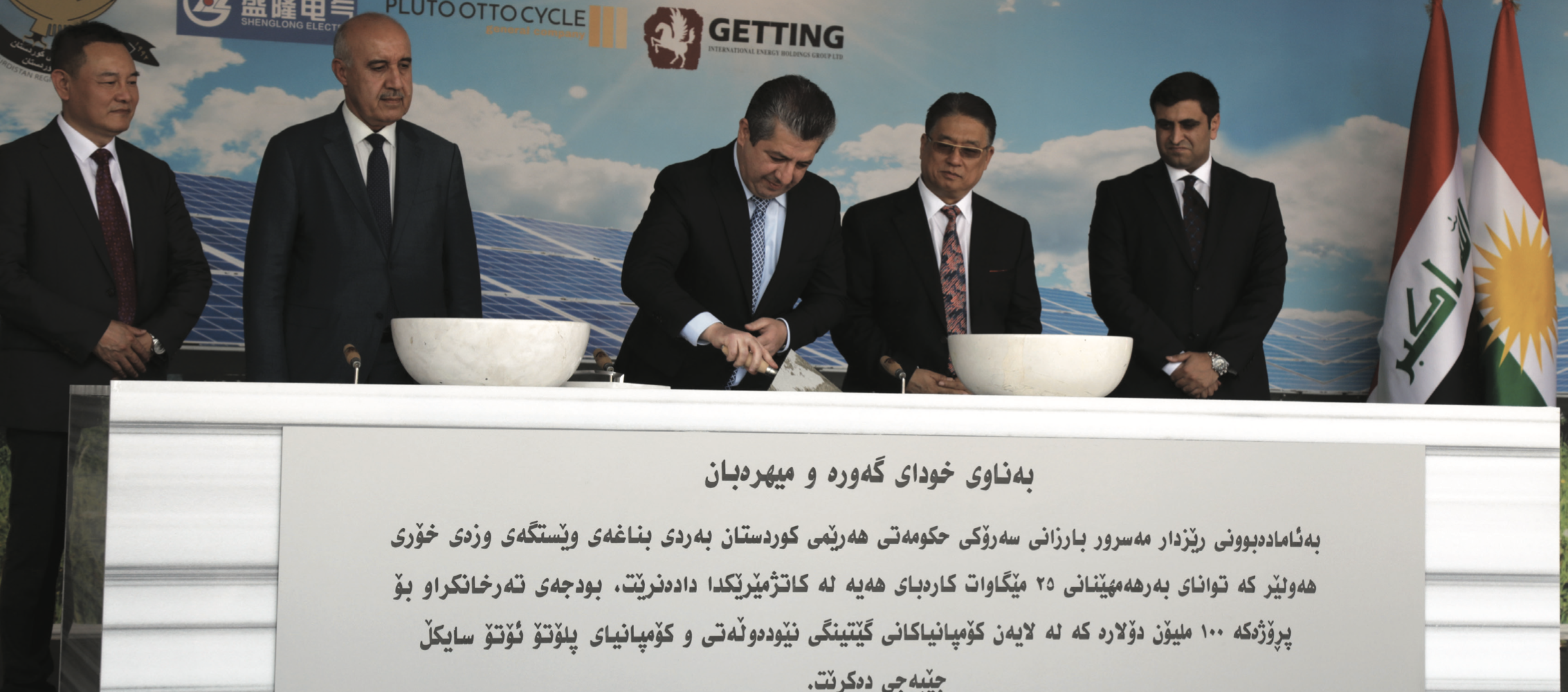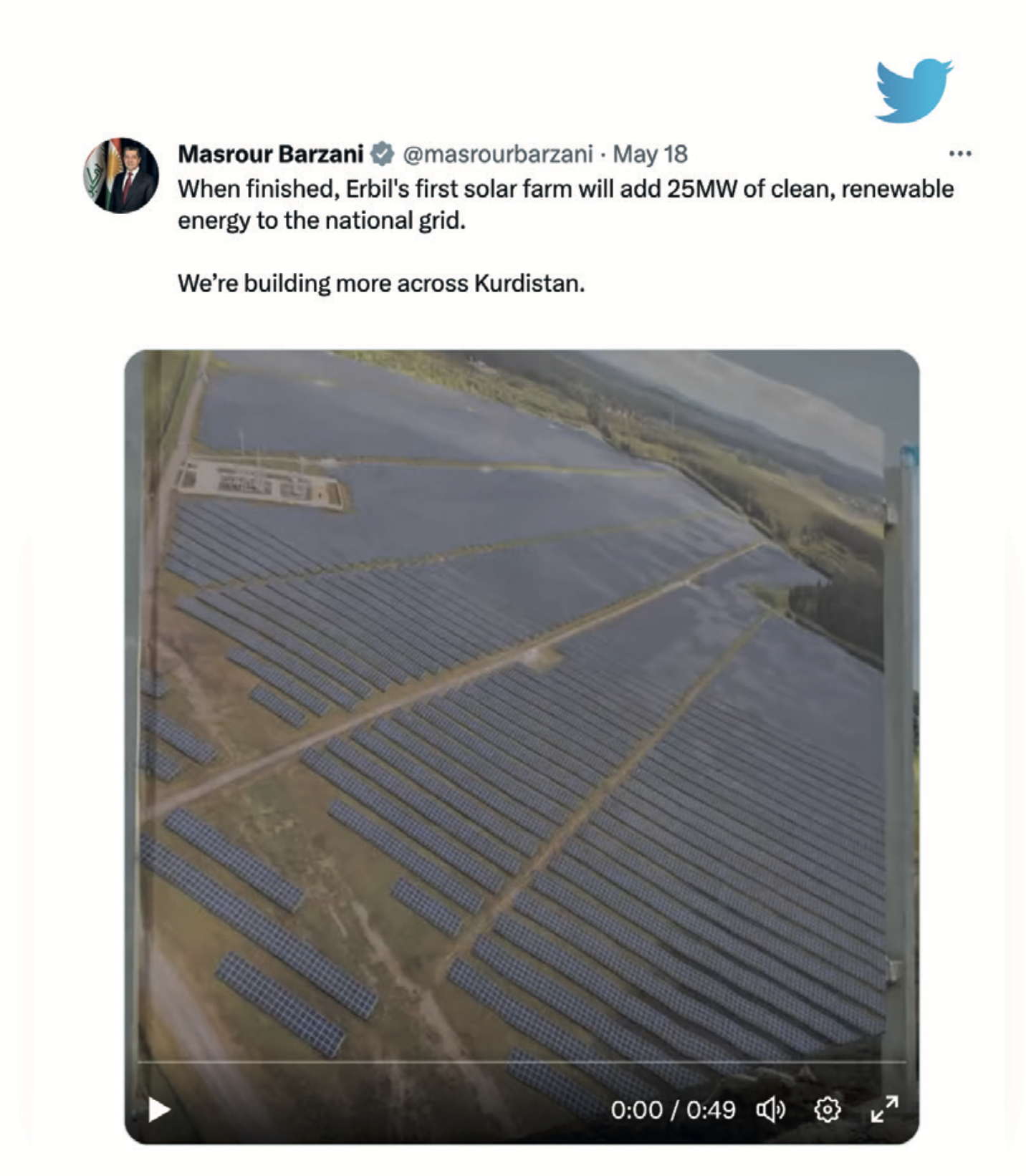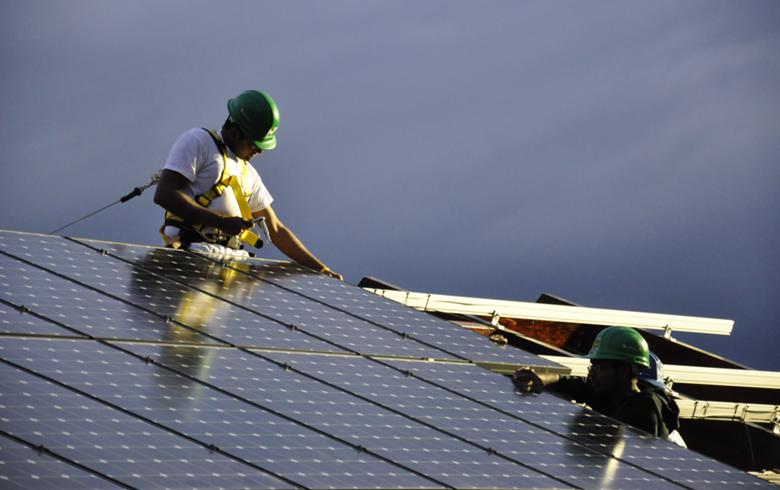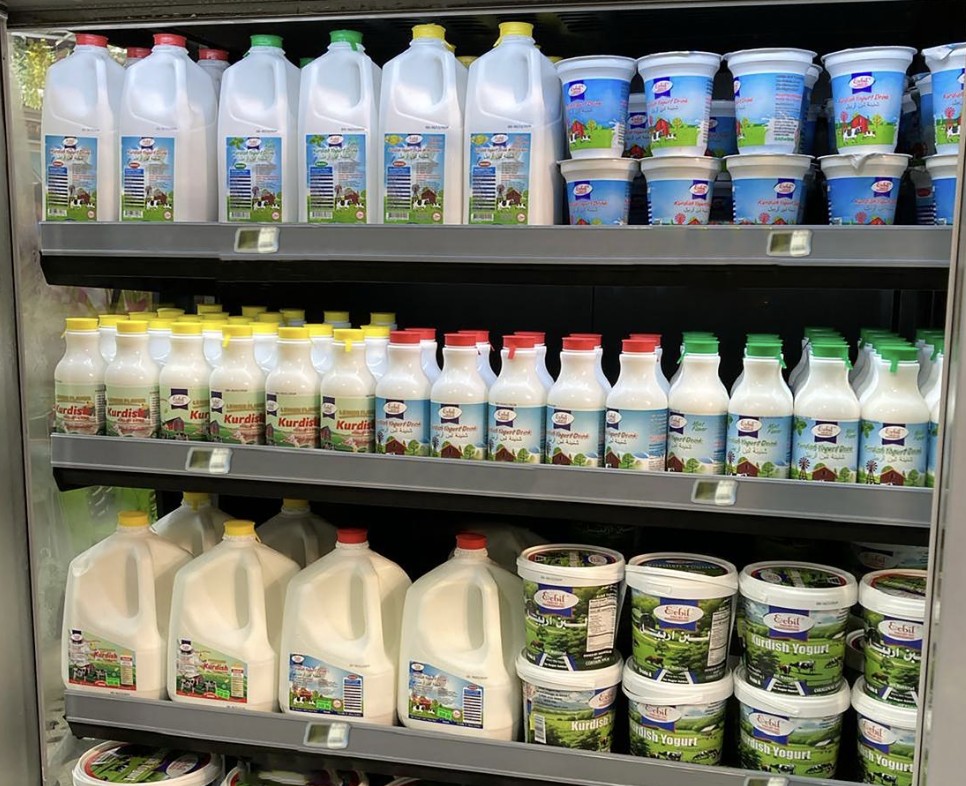On May 18, the Kurdistan Regional Government's Prime Minister Masrour Barzani marked a significant milestone in the region's energy sector by laying the foundation stone for the first solar power plant in Erbil province. With an impressive capacity of generating 25 MW of electricity per hour, the project represents a crucial step towards developing eco-friendly energy sources in the Kurdistan Region. During his speech, Prime Minister Barzani highlighted the importance of sustainable energy and the Kurdistan Region's responsibilities in managing their energy payments and reducing overconsumption.
The land of sunny days
The Kurdistan Region is widely recognized for its abundant sunshine, making it ideal for investment in solar energy. With a consistently sunny climate, the region can harnessing solar power as a clean and sustainable energy source throughout most of the year and provide a reliable and renewable source of energy for the region's growing needs.
A step towards clean and renewable energy
The groundbreaking ceremony for the power plant signifies the KRG's commitment to transitioning towards clean and renewable energy sources. Prime Minister Barzani expressed his gratitude to the Ministry of Electricity and the companies involved (Getting International Energy, Pluto Otto Cycle and Shengland Electric) in this pioneering project, envisioning it as the first of many similar ventures throughout Kurdistan to harness the power of the sun, reduce the region's reliance on fossil fuels, and decrease its carbon footprint.

Promoting energy sector reforms
Prime Minister Barzani also acknowledged the Ministry of Electricity's efforts in improving the region’s electricity infrastructure and addressing energy violations. To further secure access to reliable, affordable power for the people in Kurdistan, the government has collaborated with the ministry in implementing smart meters, which help reduce electricity waste, improve energy efficiency, and ensure steady supply from the national grid. However, the Prime Minister emphasized that continuous development and improvement in this domain are essential to ensure around-the-clock power supplies.
Partnerships for sustainable development
Recognizing the need for a comprehensive approach, Prime Minister Barzani highlighted the importance of partnerships between the Ministry of Electricity and the private sector. These collaborations will facilitate long-term planning and build more sustainable security of supply by integrating solar and other renewable energy sources. By seizing opportunities in the electricity sector and working together, the government and private entities can better serve the citizens and meet the region's growing energy demand.

Creating an environment for solar energy
The KRG aims to seize the full potential of solar by introducing favorable policies and regulations and is incentivizing investments through tax incentives, advantageous tariffs, and simplified administrative processes. By fostering an environment conducive to solar energy development, the region can attract a wide range of domestic and international investors and unlock the maximum benefits of this clean energy source.
Public cooperation for energy conservation
In his speech, Prime Minister Barzani underscored the public's role in managing energy payments and reducing overconsumption, stressing that citizens' cooperation is vital to reducing the government's annual expenditure in the sector. By promptly paying their electricity bills and avoiding wastage, citizens contribute to the government's ability to cover a portion of electricity-production costs. Moreover, the Prime Minister highlighted that the subsidized electricity rates provided by the government are significantly lower than the actual production, transmission, and distribution costs. By cooperating, citizens can help ensure uninterrupted power supplies and reduce reliance on private generators.

Dual responsibilities
The Prime Minister acknowledged that although the government has made efforts to increase electricity production, the region has yet to achieve the goal of providing uninterrupted power supplies. The increase in population, establishment of new factories, and elevated use of electrical appliances have all contributed to the existing supply challenge. He emphasized that both the government and citizens share a dual responsibility in addressing this issue. While the government must provide improved services and bolster the electricity sector, citizens must fulfill their responsibilities by paying their bills promptly, which will enable the provision of constant access to electricity at a cost comparable to private generators.
Investing in solar energy
Investing in solar energy in the Kurdistan Region presents numerous benefits. Firstly, it promotes energy independence by reducing reliance on fossil fuels and external energy sources. By tapping into the region's solar potential, Kurdistan can generate its own electricity and reduce the need for costly energy imports.
By shifting towards solar energy, the region can also mitigate the adverse effects of climate change and improve air quality, leading to a healthier and more sustainable environment.
Furthermore, solar energy can drive sustainable economic growth and create jobs. The establishment of solar power plants requires skilled labor for installation, operation, and maintenance and can lead to the creation of a local workforce specialized in solar energy, providing employment opportunities and driving economic development in the region.
Finally, investments in solar energy infrastructure can attract foreign investors, stimulating economic growth and diversification. The Kurdistan Region can thus position itself as a hub for renewable energy projects, attracting international companies and expertise and fostering technological advancements in the field.
Marewan Hawramy is a writer and has master degree in diplomacy and international relations.

